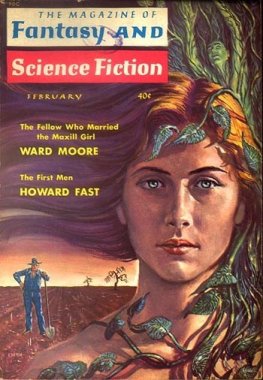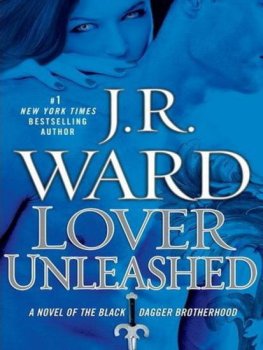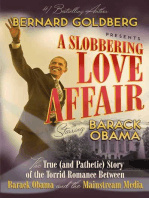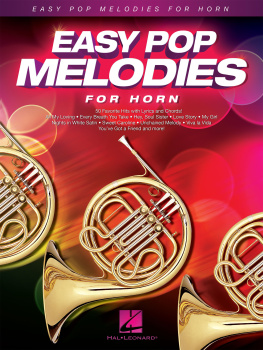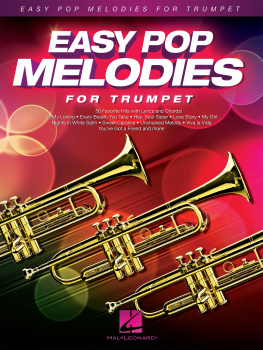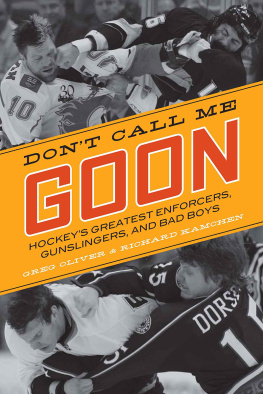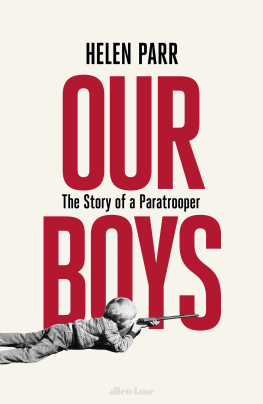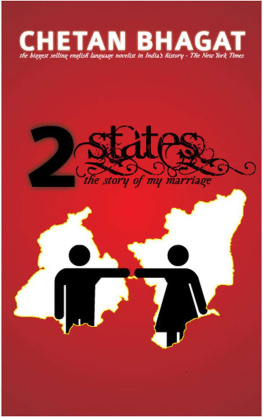Uord Mur - The Fellow who Married the Maxill Girl
Here you can read online Uord Mur - The Fellow who Married the Maxill Girl full text of the book (entire story) in english for free. Download pdf and epub, get meaning, cover and reviews about this ebook. year: 1959, genre: Science fiction. Description of the work, (preface) as well as reviews are available. Best literature library LitArk.com created for fans of good reading and offers a wide selection of genres:
Romance novel
Science fiction
Adventure
Detective
Science
History
Home and family
Prose
Art
Politics
Computer
Non-fiction
Religion
Business
Children
Humor
Choose a favorite category and find really read worthwhile books. Enjoy immersion in the world of imagination, feel the emotions of the characters or learn something new for yourself, make an fascinating discovery.
- Book:The Fellow who Married the Maxill Girl
- Author:
- Genre:
- Year:1959
- Rating:3 / 5
- Favourites:Add to favourites
- Your mark:
- 60
- 1
- 2
- 3
- 4
- 5
The Fellow who Married the Maxill Girl: summary, description and annotation
We offer to read an annotation, description, summary or preface (depends on what the author of the book "The Fellow who Married the Maxill Girl" wrote himself). If you haven't found the necessary information about the book — write in the comments, we will try to find it.
Uord Mur: author's other books
Who wrote The Fellow who Married the Maxill Girl? Find out the surname, the name of the author of the book and a list of all author's works by series.
The Fellow who Married the Maxill Girl — read online for free the complete book (whole text) full work
Below is the text of the book, divided by pages. System saving the place of the last page read, allows you to conveniently read the book "The Fellow who Married the Maxill Girl" online for free, without having to search again every time where you left off. Put a bookmark, and you can go to the page where you finished reading at any time.
Font size:
Interval:
Bookmark:
The Fellow who Married the Maxill Girl
by Ward Moore
After a couple of weeks Nan began to understand him a little. Nan was the third-oldest Maxill girl. The wild one, they called her in Henryton, not forgetting they had said the same of Gladys and later Muriel; Gladys now high in the Eastern Star, and Muriel, married to Henryton's leading hardware and furniture dealerMuriel, mother of the sweetest twins in Evarts County. But they said it of Nan with more assurance.
Everyone knew Maxill had bought the old Jameson place, eighty of the most worthless acres ever to break a farmer's heart, the year after Cal Coolidge became President, because heMalcolm Maxill that is, not Mr. Coolidgewanted an out-of-the-way location for a still. Naturally they looked for his six kids, all girls, to run wild with such a background. Not that Henryton, or Evarts County either, for that matter, upheld Prohibition or admired Andrew Volstead. But buying a so-called half-pint now and then (striking a blow for liberty, the more robust males called it, a trifle shamefacedly) was one thing, and condoning moonshining and bootlegging in their midst was something else again.
Of course moonshining was in the past now. Prohibition had been dead for two years, and people wondered more how Maxill was going to make a living from his worthless land than over his morals. But Nan had been seen necking in automobiles (a Velie and a Rickenbacker) with different boys, and heavens knew on how many unobserved occasions she'd done the same, and honestly, commented Henrytonnot to say Evarts Countymaybe the juvenile authorities should be notified, because Nan was still underage. Besides, she had a mean, sullen look, defiant and rebellious, that showed she needed a strong hand.
No one thought of going to her father. Everybody knew he kept a loaded shotgun handy (gossips said that was how Murielempty chatterthose lovely twins) and had run more than one nosy character off his place. Henryton people tended to mind their own businessthey had plenty to think about with the Depressionso talk of the authorities remained just talk. Still, it isolated Nan Maxill more than ever and encouraged her wildness.
Hethe fellow; they hadn't any other name for him for a long time; all the Maxills knew who was meant when one of them used the pronounwas found by Josey in the south pasture, which hadn't been a pasture for years and years, just a hummocky, lumpy expanse of weeds and obstinate brush. Josey was eleven and shy, a birthmark down the left side of her face was complicated from time to time by almost every possible affliction of the skin, so that she had begun hiding from strangers at the age of seven and never found reason to break the pattern.
She hadn't hidden from him. All her natural childish curiosity about people, long suppressed, overwhelmed by their greedy inquisitiveness over her blemishes, seemed stirred by the sight of him. Though, as everyone said afterward, he didn't really look different. He was oddly dressed, but Henryton had seen boys from Spokane or San Francisco who dressed even more oddly, and his complexion had a peculiar vitality and sheen and at the same time a delicacy which contrasted with those of the farmers accustomed to sun all day, or those who hid in shadowed stores or offices to earn dollars.
"Who're you?" asked Josey. "My dad don't like fellers snooping around. What's your name? Maybe you better get out; he's got a gun and believe me he can use it. What's that stuff you're wearing? Looks like it was your skin, only blue, not something sewed at all. I can sew real good myself; it relaxes me, so I'll probably never be a delinquent. You're not deaf and dumb, are you, Mister? There's a man in Henryton's deaf, dumb and blind. People buy pencils from him and drop pennies and nickels in his hat. Say, why don't you say something? My dad'll sure run you off. That's a funny kind of humming. Can you whistle? There's a piece they got a record of in schoolI can whistle the whole thing. It's called Flight of the Bumblebee. Want to hear me? Like this Gee, you don't need to look so miserable. I guess you just don't like music. That's too bad. I thought when you were humming like thatthe way you are now, too, and I think it sounds real nice even if you don't like my whistleyou must like music. All us Maxills do. My Dad can play the fiddle better than anybody "
She told Nan later (because Nan had been the sister who had most to do with taking care of her) he hadn't seemed just not to understand, like a Mexican or something, but acted as though he wouldn't have caught on even if he'd known the meaning of every single word. He came close, still humming, though a different tune if you could call it that; it was more like snatches of odd melodies. He put his handsshe didn't notice them particularly thenvery gently on her face. The touch made her feel good.
He walked with her to the houseit seemed right and naturalwith his arm lightly around her shoulder. "He don't talk," she told Nan; "he don't even whistle or sing. Just hums, sort of. Suppose Dad'll run him off. Maybe he's hungry."
"Your face" began Nan, then swallowed and looked from the child to him. She was in bad humor, frowning, ready to ask what he wanted or tell him sharply to be off. "Go wash your face," she ordered Josey, staring after her as she obediently took down the enameled basin and filled it. The muscles in Nan's cheek relaxed. "Come in," she said to him; "there's a hot apple pie."
He stood there, humming, making no move, smiling pleasantly. Involuntarily she smiled back, though she had been in a mood and the shock of Josey's face was still in her mind. It was hard to tell his age; he didn't look as though he shaved, but there was no adolescent down, and his eyes had mature assurance. She puzzled over the strangely light color; darkandhandsome had always been an indivisible word to her, yet she thought them and the pale hair quite exciting.
"Come in," she repeated; "there's a hot apple pie."
He looked at her, at the kitchen behind her, at the unpromising acres over his shoulder. You might have thought he'd never seen such ordinary sights before. She took his sleevethe feel of it sent prickles through her thumb and fingers as though she'd touched something live instead of inert, touched silk expecting cotton, metal anticipating woodand pulled him through the door. He didn't hold back or, once inside, seem ill at ease. He merely actedstrange. As though he didn't know a chair was for sitting on or a spoon was for cutting the flaky crust and scooping up the juicy, sticky, drippy filling, or even that the pie was for putting in the mouth, tasting, chewing, swallowing, eating. The horrid thought of mental deficiency crossed her mind, to be dismissed by the sight of him, so unequivocally whole and invulnerable. Still
Josey ran to her. "Nan, Nan I looked in the mirror! Look at me. My face!"
Nan nodded, swallowing again, glancing swiftly at him and away. "It must have been that last prescription. Or else you're just growing out of it, baby."
"Thethe thing! It's lighter. Faded."
The birthmark, angry and purple, had receded in size and color. The skin around it was clear and vibrant. Nan put her fingers wonderingly on the smooth cheek and stooped to kiss her sister. "I'm so happy."
He sat there, humming again. Oh, what a silly, Nan thought cheerfully. "Here," she said, in the manner of one addressing an idiot or a foreigner. "Eat. See. Like this. Eat."
Obediently he put the guided spoon of pie into his mouth. She was relieved when he disposed of it normally; she had been afraid she might have to direct each spoonful. At least he didn't have to be fed like a baby. She hesitated a fraction of a second before pouring a glass of milk, feeling small for doing so. She wasn't meannone of the Maxills were; their faults usually sprang from an excess of generositybut the cow was drying up, she was a hard one to breed, her father wasn't much of a hand with animals anyway, and the kids needed the milk, to say nothing of the butter Nan preferred to lard for baking. But it would be shameful to grudge
Font size:
Interval:
Bookmark:
Similar books «The Fellow who Married the Maxill Girl»
Look at similar books to The Fellow who Married the Maxill Girl. We have selected literature similar in name and meaning in the hope of providing readers with more options to find new, interesting, not yet read works.
Discussion, reviews of the book The Fellow who Married the Maxill Girl and just readers' own opinions. Leave your comments, write what you think about the work, its meaning or the main characters. Specify what exactly you liked and what you didn't like, and why you think so.

